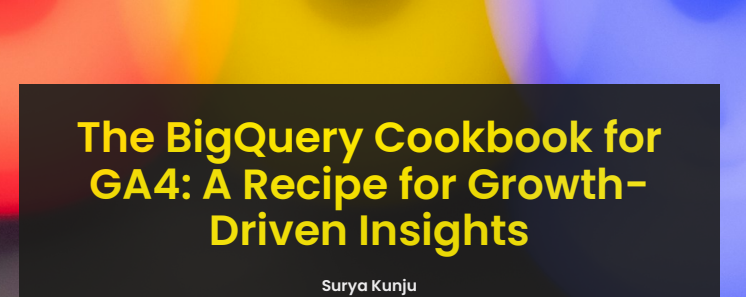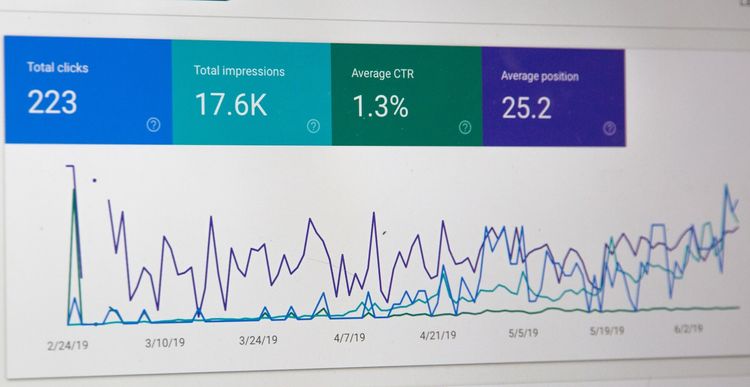Transforming Google Ads Campaigns using BigQuery's ML

This article will have two parts. The first piece serves as an executive brief, aimed at giving you a digestible snapshot without descending into the complexities of code. For those who are keen on exploring the technical depth, do dive into this article and its subsequent part. In the sequel, I pull back the curtain on the intricate process of forecasting the performance - in terms of clicks - of an ongoing Google Ads campaign on my website, advancedmartech.com.
- Part 1: From Strategy to Execution - A Practitioner's Guide to Implementing BigQuery Solutions for Google Ads Optimization
- Part 2: From Strategy to Execution - A Practitioner's Guide to Implementing BigQuery Solutions for Google Ads Optimization

Part 1: From Strategy to Execution - A Practitioner's Guide to Implementing BigQuery Solutions for Google Ads Optimization
In the data-driven era of marketing, the search for cutting-edge methods to boost digital advertising campaigns is relentless. Google Ads, a major player in the industry, does provide a wealth of data, but Google BigQuery has emerged as a crucial tool for fully leveraging this information and gaining deeper insights.
The Revolutionary Impact of BigQuery on Google Ads Data
Here is a TL:DR version of the pivotal reasons why Google Ads data integration with BigQuery can revolutionize your marketing strategy are as follows:

These benefits can be game-changers for organizations that run large-scale or sophisticated advertising campaigns, helping them to maximize their return on ad spend and make more informed decisions.
Unpacking Advanced Analytics and Machine Learning
The intersection of Google BigQuery's advanced analytics and machine learning capabilities, especially with tools like BQML (BigQuery Machine Learning), is a cutting-edge frontier in marketing. BQML facilitates data analysts and data scientists to build, deploy, and share machine learning models using conventional SQL queries within BigQuery. This feature empowers marketers to conduct predictive analytics, segmentation, and other intricate analyses that Google Ads does not support. Google Ads data exported to BigQuery does not include user_id level information due to privacy reasons. The data primarily focuses on aggregated campaign-level, ad group level, or ad level statistics.
Here are some advanced use-cases:
- Customer Lifetime Value Prediction: You can use the data from Google Ads along with other first-party data (if available) to train a model on Vertex AI to predict the customer lifetime value (CLV). Although Google Ads data doesn't include user_id level information, you can make these predictions at a segment level. The model can be trained on historical data and it can learn based on the attributes of the ads that led to conversions.
- Ad Spend Optimization: Using BQML or Vertex AI, you can predict the performance of different campaigns, ad groups, or even keywords, in terms of metrics like clicks, impressions, conversions, etc. This can help in identifying the most and least performing entities and the budget can be reallocated to optimize the ad spend.
- Predictive Analytics for Churn: Predict user churn at a segment level. By identifying which campaign or keyword leads to higher user retention, marketers can prioritize those campaigns or keywords to reduce churn and increase user engagement.
- Campaign Performance Forecasting: You can use BQML time-series functions to forecast campaign performance metrics like clicks, impressions, cost, conversions, etc., for future dates. This can aid in better planning and budget allocation for future marketing activities.
These use-cases can greatly aid in improving the effectiveness and efficiency of marketing efforts. As always, while working with data, especially for ML models, it's important to ensure the quality and relevance of the data for the problem at hand. You might need to perform appropriate data pre-processing and feature engineering tasks to make the data suitable for these use-cases.
Wrapping Up: Revolutionizing Google Ads Strategies with BigQuery
While Google Ads serves as a robust platform for advertising and standard reporting, integrating Google BigQuery can amplify your marketing ROI significantly. BigQuery allows you to handle large datasets, integrate data from diverse sources, create custom metrics, perform historical analysis, and utilize advanced analytics and machine learning tools like BQML. With these resources at your disposal, you're equipped to make informed decisions, refine your marketing strategies, and ultimately, extract maximum value from your Google Ads investment.
Here's a sneak peek into Part 2: In the following segment, we adopt a hands-on approach, guiding practitioners through the execution of various tasks that cater to the challenges at hand.
Hope this was helpful! Please leave your comments below as it helps improve the quality of my articles.

Disclaimer: For informational purposes only: This article reflects the personal views and opinions of the author and does not constitute, nor should it be construed as, the official position or policy of my Employer. My Employer has not reviewed, endorsed, or approved the content of this article.





Member discussion